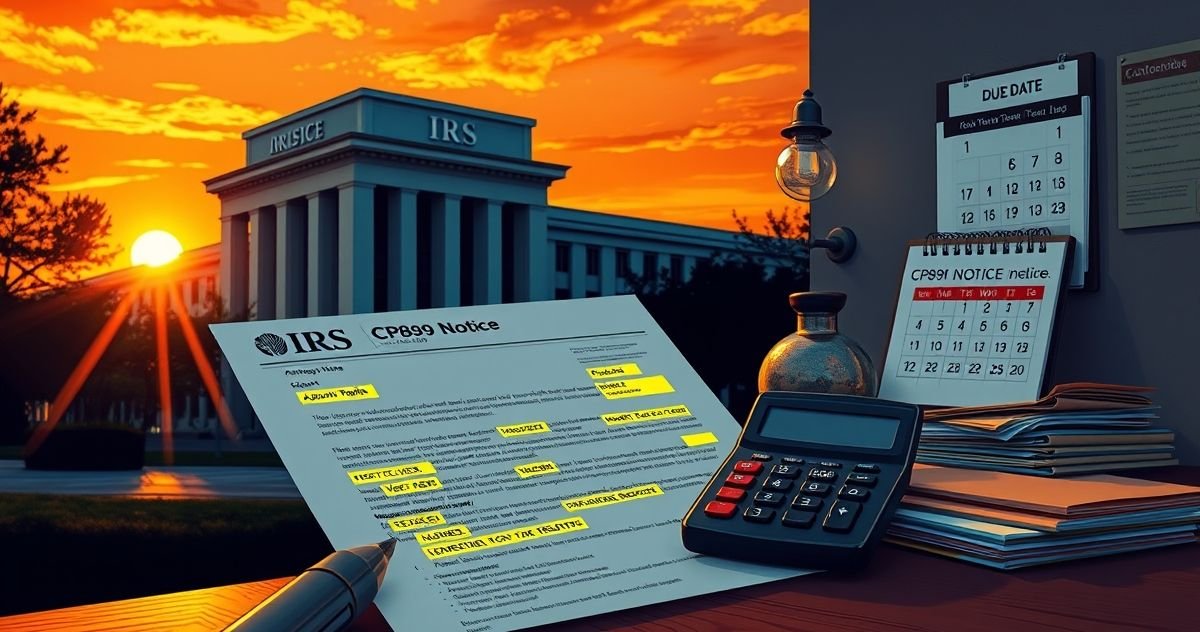Introduction to CP89Q Notice
The CP89Q Notice is a communication tool used by the IRS to inform taxpayers of significant amendments to their tax accounts. This notice primarily arises after the IRS identifies discrepancies or errors in previously submitted tax returns. Key adjustments might include recalculated refunds, additional tax liabilities, or corrections related to reported income, credits, or deductions.
Key Features of CP89Q Notice
Explanation of Adjustments
The primary function of the CP89Q Notice is to explain the modifications made to a taxpayer’s account. It thoroughly details the items that have been adjusted and outlines the reasons for such changes. The most common types of adjustments include:
- Corrections to reported income: These occur when there are mismatches between the income reported by the taxpayer and third-party information that the IRS has on record, such as forms W-2 or 1099.
- Credit adjustments: Situations where credits claimed, such as the Earned Income Credit or Child Tax Credit, do not align with documented eligibility or required substantiation.
- Deduction recalculations: Corrections in deductions, such as for charitable contributions, occur if they were miscalculated or if further documentation is required.
Impact on Refunds or Balances Due
The CP89Q Notice spells out whether the adjustments result in a balance due, a reduction, or an increase in the previously expected refund:
- Revised Balance: If additional taxes are owed, the notice specifies the exact amount and provides a due date.
- Revised Refund: When the refund amount changes, the IRS may issue an additional payment or reduce the initial refund as necessary.
- Interest and Penalties: In cases where the IRS adjustments result in underpayment, penalties and interest may be applied, and the notice will detail these new charges along with instructions for payment.
Filing and Compliance Requirements
Responding correctly to a CP89Q Notice ensures continued compliance with federal tax regulations. Taxpayers are often required to act upon receipt of this notice, leading to steps like:
- Opting for payment options such as full payment by the specified deadline, or arranging installment agreements or other payment plans.
- Disputing IRS’s adjustments if believed to be incorrect by following laid-out procedures in the notice, potentially requiring additional documentation.
- Pursuing filing amendments, which means submitting an amended return if there are additional discrepancies not covered by the CP89Q Notice.
Consequences of Non-Compliance
Ignoring or failing to respond adequately to the CP89Q Notice could carry significant repercussions:
- Increased Penalties and Interest: Unresolved tax balances will continue to accrue additional charges, increasing the taxpayer’s financial burden.
- Enforcement Actions: The IRS might escalate to collections, issuing levies or liens against the taxpayer’s assets if the balance remains unaddressed.
- Potential Audits: Continuous discrepancies or failure to engage with IRS notices may heighten the prospect of an IRS audit in future dealings.
Significance of CP89Q Notice in Tax Resolution
The CP89Q Notice serves a critical role in the realm of tax resolution for several reasons:
- Timely Adjustments: Upon receipt, immediate acknowledgment and resolution of requirements can prevent further complications and optimize tax account accuracy.
- Debt Resolution: Serves as a pivotal point in tax debt negotiation, possibly leading to installment agreements or offers in compromise.
- Proactive Compliance: Encourages taxpayers to review future filings meticulously, aiding in the avoidance of similar discrepancies and enhancing tax accuracy.
Conclusion
The CP89Q Notice is indispensable for monitoring tax account accuracy, ensuring taxpayers resolve potential issues promptly to avoid further obligations. By fostering heightened compliance and financial accountability, it reinforces stronger taxpayer-IRS relations and facilitates effective tax management.



